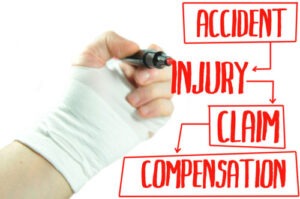
You likely put a lot of thought into the decision of where to trust your elderly loved one’s care. Perhaps you chose a trusted family member to provide care, or maybe you turned to a sitter, nursing home, or assisted living facility. Regardless of your decision, you probably never expected abuse to occur.
But what if you do suspect abuse? What should you do when you think that a caregiver abused your elderly loved one? Taking the right steps can make a huge difference in not only ensuring your loved one’s overall health and well-being, but also in providing you with the ability to seek compensation for that abuse.
1. Contact an experienced elder abuse attorney as soon as possible.
If you suspect that your elderly loved one has suffered abuse at the hands of a caregiver or relative, do not wait or attempt to handle your complaint on your own. If you suspect elder abuse, you need assistance from an experienced elder abuse attorney, who can walk you through the process of investigating potential abuse, protecting your loved one, and filing a claim, if needed. An experienced elder abuse attorney can:
Help you collect evidence. You cannot remain with your loved one at all times. You may also miss vital evidence about your loved one’s abuse due to inexperience or lack of knowledge. When you work with an experienced personal injury attorney, on the other hand, you will receive vital advice about what constitutes evidence and how to collect it. An attorney may also have access to some evidence that you cannot access on your own, including video footage of nursing homes and assisted living facilities or a copy of records documenting your loved one’s care.
Help you figure out what to do next. When you suspect your loved one suffers abuse, you may have no idea what to do next. Can you prevent the abuser from accessing your loved one? Do you need to remove your loved one from a specific care facility or transfer care away from someone you suspect of abuse? What legal rights does your loved one have? By working with an experienced elder abuse attorney, you can get a better idea of your next steps, how to take them, and what to expect going forward.
Help you understand what compensation your loved one deserves following abuse. If your loved one suffers severe abuse, you may have grounds for a personal injury claim. You can claim compensation for:
- Medical bills acquired as a result of abuse
- Pain and suffering
- Finances lost to financial abuse
- The cost of transferring your loved one to a new care facility, if needed
- The cost of wages you lost due to managing your loved one’s medical needs after abuse
In some cases, you can obtain substantial compensation for your loved one, especially if a nursing home or assisted living facility bears liability for that abuse. By working with an experienced personal injury lawyer, you can get a better idea of how much compensation your loved one deserves and how to go about getting it.
Expect More, Receive More: Legal Support That Feels Like Family
2. Document, document, document.
When you suspect that your loved one has suffered abuse, you should attempt to document it as much as possible. While this can pose some embarrassment to an elderly loved one, especially one who feels responsible for the abuse, documenting can help provide valuable evidence of your claim. The fact that you suspect or even observe abuse does not necessarily mean that anyone else will agree with you. If you suspect abuse, you may need to start by taking your suspicions to a nursing home director or reporting them to the police. To help protect your loved one, however, you should start by compiling documentation of the abuse.
Take photos of any injuries. If you see visible injuries on your loved one, take photos of all of those injuries: bruises, contusions, or broken bones, for example. Make sure to note the location of the injury as well as the date you took the picture. You can also take pictures of other factors that you believe indicate abuse. For example, if you believe your loved one has lost weight due to neglect, make sure to photograph the weight loss.
Document the injuries themselves. When you see your loved one suffering injuries, write down those injuries. Note the following:
- Where the injury occurred
- What your loved one says about the injury
- Any explanation given by nursing home staff or caregivers for the injury
Often, a caregiver can excuse a single minor injury as a mistake. When those injuries add up over time, however, you may build a stronger claim against that caregiver, allowing you to seek compensation.
Document instances of any other types of abuse that you observe. While physical abuse can leave visible injuries behind, including broken bones, bruises, and contusions, other types of abuse can also cause severe complications for senior loved ones. Document any instances of the following types of abuse, as well.
- Emotional abuse occurs when an abuser attempts to emotionally or psychologically control your loved one. Emotional abuse can make a senior afraid of a specific caregiver or cause your loved one to withdraw from contact with friends and family members. Emotional abuse can also destroy a senior’s confidence or leave her unwilling to speak about herself or her daily activities. If you notice abrupt changes in behavior, especially those unrelated to Alzheimer’s or dementia, carefully consider whether emotional abuse may have some bearing in those changes.
- Sexual abuse may appear invisible, especially if you do not provide physical care for your senior loved one. Signs of sexual abuse may include bruising of the genitals or tears in the vagina or rectum. If you do not see these areas, you may notice your loved one’s withdrawal from contact or discussions, fear of certain caregivers, or signs that your loved one bears significant shame but does not want to talk about it.
- Financial abuse represents an abuse of an elder’s funds: use of those funds for purposes other than the elder’s care, often without the elder’s consent. Sometimes, the person in control of your loved one’s finances may choose to misdirect those funds, using them for the abuser’s purposes rather than for the senior’s care. In other cases, the abuser may force your loved one to withdraw sums of money or pay for specific things. Some abusers may use their visits and relationships to pressure a senior into giving them money, even when it prevents the senior from paying his or her own bills.
- Neglect can take longer to spot, especially if the caregiver takes care to spruce your loved one up before your visits. Your loved one has the right to reasonable care and good quality of life no matter who provides care. Neglect may start with providing inadequate care: lack of medical care when needed, lack of overall cleanliness, or failure to provide food and water when needed. Over time, a neglectful caregiver may fail to take notice of your loved one at all. Carefully document any signs of neglect: signs that your loved one did not receive adequate food or water, signs that your loved one did not receive needed medical care, instances in which your loved one wore the same clothes for several days or started to smell. Seniors who lack mobility may start to develop bed sores or infections due to a lack of adequate care.
Keep track of any claims your loved one makes about abuse. Most of the time, loved ones listen carefully when a senior in their lives mentions abuse. In some cases, however, family members may write off those claims of abuse to Alzheimer’s or dementia, which can cause significant confusion in many seniors. If your loved one makes any claims of abuse, however, even if you suspect delusions, make sure to document those claims. Over time, you may notice a pattern: one specific caregiver often accused of abuse, for example. In other cases, your loved one’s claims may provide a starting point for identifying the abuser later. That documentation may also help give you a better idea of how long ago abuse started or how often it occurred. Always carefully evaluate and investigate claims of abuse so that you do not miss out on important evidence that your loved one has suffered harm.
Document any complaints you issue against the nursing home or care provider. If you notice problems with your loved one’s care or suspect a specific caregiver of providing inadequate care or abusing your loved one, you may initially complain to the nursing home director or the abuser’s employer (the company that sends out in-home caregivers, for example). Any time you must complain about the care given to a loved one, especially a senior loved one, make sure you document your complaints and keep track of them. If you send an email, keep it in a specific folder so that you can easily access it later. Did you have a face-to-face conversation? Make note of it. This documentation not only shows the history of problems with a specific care provider, but it can also help you track how behavior changes in response to your complaints and comments—and, in some cases, provide a motive for future abuse.
Discuss the injuries with others. Does your loved one have more frequent injuries, including bumps and bruises, when a specific nurse takes over care? Do you notice more injuries when a specific individual has visited? Discuss the injuries with others. You may not want to approach the caregiver you suspect of abuse first. Instead, discuss those injuries with other caregivers and loved ones. Determine whether anyone else has noticed similar patterns or has similar concerns. Note any explanations offered by other individuals as well as adding their observations to your own.
Your documentation of severe injuries can provide vitally-needed records that can help prove the abuse. You may need these records to help identify the abuser or build a claim against the person who caused your loved one’s abuse. Not only that, your documentation can help you seek the care your loved one needs after suffering abuse at another party’s hands.
3. Obtain copies of any important records.
As you work to prove abuse of your loved one, ask for your loved one’s permission to access relevant records. You may already have power of attorney for your loved one, in which case, you can access those records easily. If not, ask your elder abuse lawyer to help you seek relevant information.
You may need to access:
- Medical records. If your loved one suffers ongoing abuse at the hands of a caregiver or family member, medical records may help show the pattern of abuse. For example, records that describe malnutrition or dehydration could indicate severe neglect. Medical records can provide an accurate picture of injuries, especially severe injuries, suffered by your loved one. For example, multiple reports of broken bones or a report of traumatic brain injury could clearly indicate abuse. Medical providers may also make note of any suspected abuse or even report that abuse, since medical providers bear a responsibility to their patients to report suspected abuse.
- Financial records. Financial abuse can cause just as much damage to your loved one as physical abuse. By accessing your loved one’s financial records, you can get a full picture of his finances, including purchases made and funds withdrawn from his accounts. Take a look at your loved one’s bank account information, checks written, and any accounts that he or she may have cashed out, including savings bonds or investment accounts. You should also keep track of your loved one’s actual expenses and financial habits, since this can help you identify the difference between fraud/financial abuse and your loved one mismanaging his or her own money.
If you suspect an elderly loved one has suffered abuse, consult with an attorney as soon as possible. Not only can an attorney help you report your suspicions and investigate the claim, but also an experienced elder abuse attorney can help you get your loved one out of a potentially abusive situation as well as seek compensation for that abuse.






